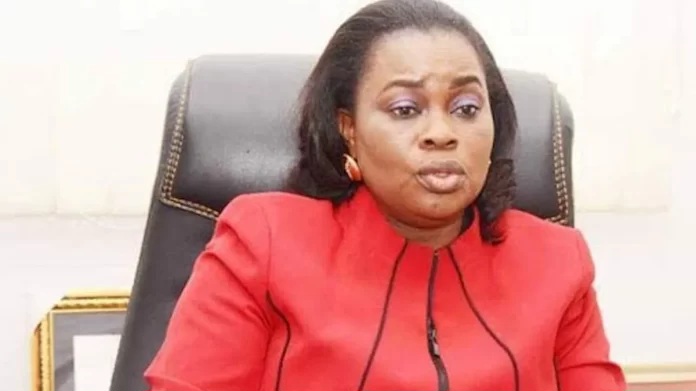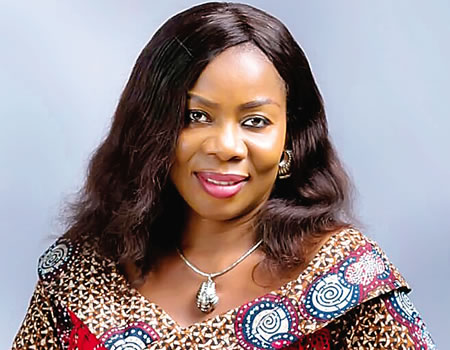 In an era where technology has democratized information dissemination, Yorùbá culture faces both opportunities and challenges. While modern gadgets have empowered many to become journalists, they have also led to a rise in uncultured activities among some bloggers. This situation has significant implications for the rich traditions of the Yorùbá people, particularly concerning the roles of revered figures like Aláàfin of Ọ̀yọ́, Ọba Akeem Ọ̀wọ́adé Ẹlẹ́wùẹtù, and Ọ̀ni of lfẹ̀ Ọba Ẹnìtàn Ògúnwùsì Ọ̀jájá. As custodians of culture, these Obas represent more than mere authority; they embody the essence of Yorùbá heritage and serve as symbols of dignity for the community.
In an era where technology has democratized information dissemination, Yorùbá culture faces both opportunities and challenges. While modern gadgets have empowered many to become journalists, they have also led to a rise in uncultured activities among some bloggers. This situation has significant implications for the rich traditions of the Yorùbá people, particularly concerning the roles of revered figures like Aláàfin of Ọ̀yọ́, Ọba Akeem Ọ̀wọ́adé Ẹlẹ́wùẹtù, and Ọ̀ni of lfẹ̀ Ọba Ẹnìtàn Ògúnwùsì Ọ̀jájá. As custodians of culture, these Obas represent more than mere authority; they embody the essence of Yorùbá heritage and serve as symbols of dignity for the community.
The rise of smartphones and social media has transformed how news is reported and consumed. While this technological shift allows for broader reach, it has also led to misinformation and sensationalism. Many individuals, lacking the necessary training or respect for cultural nuances, take to platforms to share unverified claims. This trend threatens the integrity of news and undermines the cultural values the Yorùbá people hold dear. As the saying goes, “Ibi a ti wá, ni yóó ṣe atọ́nà ibi à n rè,” meaning that understanding one’s roots is crucial for guiding the future. The Obas stand as vital guides through this modern media landscape, ensuring that the cultural narrative remains authentic and respected.
Moreover, the unchecked influence of unqualified media personalities can lead to misunderstandings about Yorùbá culture, creating rifts within the community. Recent perceptions of superiority between the two Obas detract from the collective goal of promoting Yorùbá culture. Instead of fostering division, it is crucial to unite under our shared heritage, with both Obas working in harmony to elevate the narrative of the Yorùbá people. The challenges posed by modernity should not be seen as a power tussle, but rather as an opportunity for collaboration and growth. As the proverb states, “Ẹni tó bá fẹ́sẹ̀ rọ́, kì í tún pé ẹkùn fúnrànwọ́,” emphasizing that courage is essential in the pursuit of cultural preservation.
 All stakeholders must not fold their arms or believe this is just a mere issue. If urgent, workable strategies are not employed to address these challenges, it could lead to the disintegration of the Yorùbá unity that many are striving to mend. Enough of this open assault on our culture! The Obas should actively utilize technology to promote Yorùbá culture. Social media platforms can serve as powerful tools for storytelling, allowing for the sharing of authentic cultural narratives, folklore, and traditions. Initiatives like virtual tours of historical sites and live-streamed cultural events can engage younger audiences and foster a deeper appreciation of our heritage. Collaborating with content creators who respect and understand Yorùbá traditions is vital. This partnership can take various forms, such as workshops for content creators on cultural themes, developing video series featuring discussions led by the Obas, and organizing cultural festivals that showcase the vibrancy of Yorùbá culture.
All stakeholders must not fold their arms or believe this is just a mere issue. If urgent, workable strategies are not employed to address these challenges, it could lead to the disintegration of the Yorùbá unity that many are striving to mend. Enough of this open assault on our culture! The Obas should actively utilize technology to promote Yorùbá culture. Social media platforms can serve as powerful tools for storytelling, allowing for the sharing of authentic cultural narratives, folklore, and traditions. Initiatives like virtual tours of historical sites and live-streamed cultural events can engage younger audiences and foster a deeper appreciation of our heritage. Collaborating with content creators who respect and understand Yorùbá traditions is vital. This partnership can take various forms, such as workshops for content creators on cultural themes, developing video series featuring discussions led by the Obas, and organizing cultural festivals that showcase the vibrancy of Yorùbá culture.
Effective social media campaigns are also essential for promoting Yorùbá heritage. Unique hashtag campaigns can encourage users to share their experiences related to Yorùbá culture, fostering community engagement. Themed content days, such as “Traditional Recipe Tuesdays,” can highlight different aspects of our culture. Actively engaging with followers through Q&A sessions and polls will encourage participation and create a sense of belonging. Highlighting youth-led initiatives that promote Yorùbá culture can inspire others to get involved, while visually rich storytelling on platforms like Instagram and TikTok can capture attention and convey cultural narratives creatively.
To truly thrive, Yorùbá culture must promote unity both socially and economically. The potential for cultural tourism and the preservation of traditional practices can generate income and instill pride among our youth. By creating platforms that celebrate our heritage, the Obas can guide this movement effectively. As the proverb reminds us, “Àṣà kì í pin, àfi tí a bá fipá pẹ̀kan rẹ̀,” meaning that tradition does not end unless we allow it to. Prioritizing positive cultural imagery over sensationalist narratives is essential; this way, we can counteract the negative impacts of foreign cultures that have led some of our youth astray.
In conclusion, preserving Yorùbá culture and traditions amid modern technological advancements is of paramount importance. The esteemed Obas, as custodians of our heritage, must navigate these challenges wisely, ensuring that the narrative surrounding Yorùbá culture remains authentic and respectful. By fostering unity and actively promoting our rich traditions through strategic collaborations and technology, we can generate economic opportunities while instilling pride in the younger generation. The pathway to a stronger, united Yorùbá identity lies in embracing our heritage, as “èèyàn tó sọ àṣà nù kò yàtọ̀ sí ẹni tó sọ ilé nù, èèyàn tó sọ ilé nù, onítọ̀ún sọ àpò ìyà kọ́,” meaning that those who are disconnected from their culture are at risk of losing their identity. It is time to silence the voices that misrepresent our culture and focus on a collective mission of cultural revitalization, demonstrating that the Obas are symbols of dignity, learning, and progress for all Yorùbá people.





